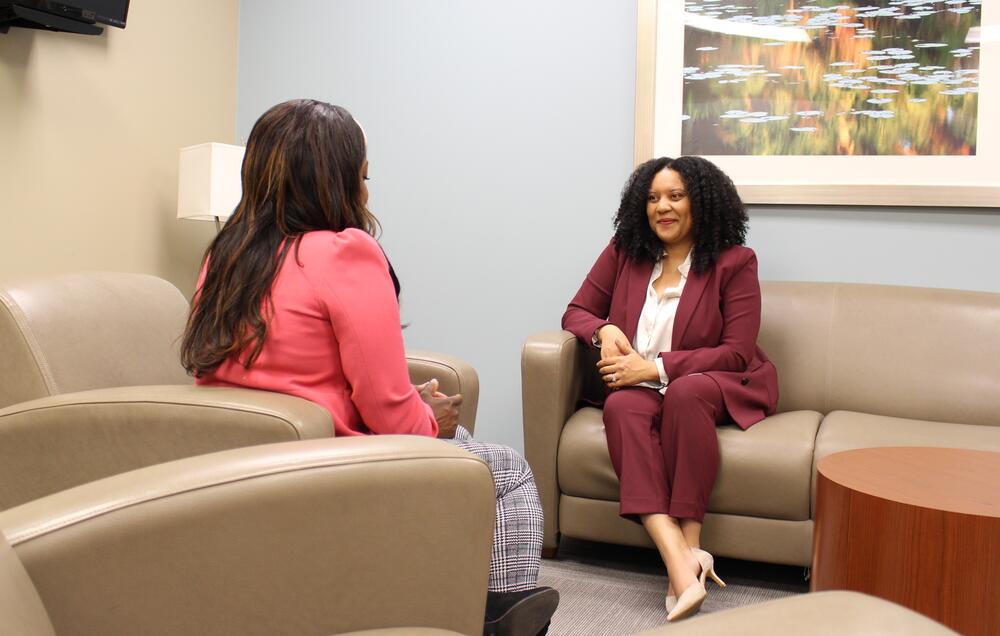
Caption
Patient Vanessa (last name withheld, left) talks with Dr. Avivah McPherson about perinatal mental health. Vanessa struggled to care for her newborn and toddler after her mother’s death before becoming McPherson's patient.
Credit: Ellen Eldridge/GPB

